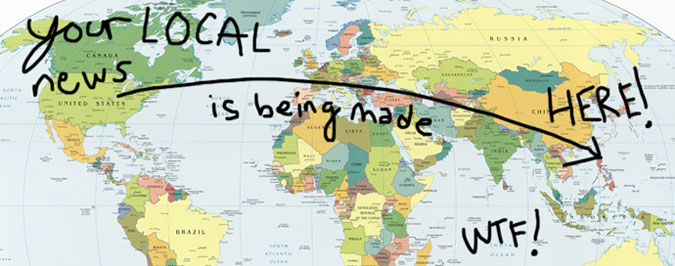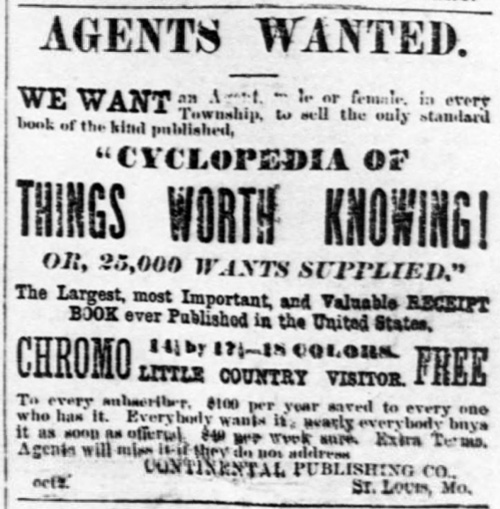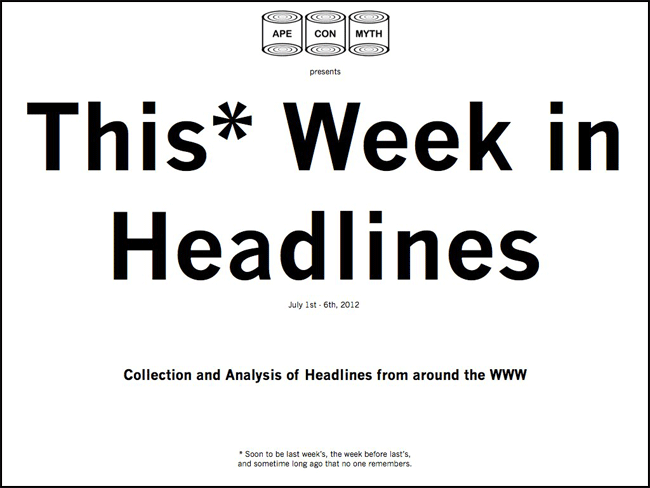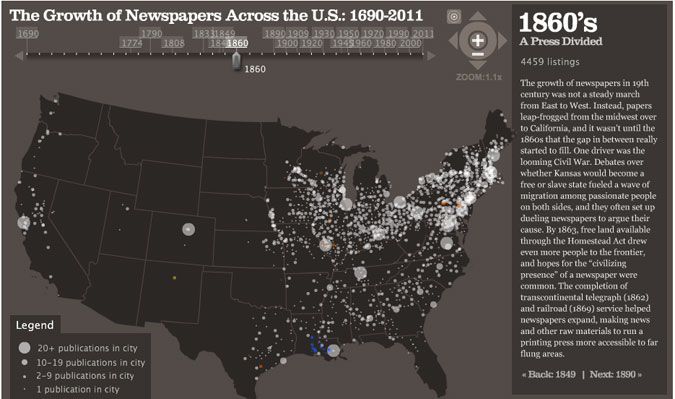This* Week in Headlines: The Experiment Continues…
Last week we started an experiment working with headlines from the New York Times to see what might be gleaned from them. This* week the experiment continues with new sources and a complete set of working links…
(click the image to launch the slideshow)
Stop Outsourcing Local News (or I Can See You Fine From Here)
The short of it?

For more on the subject, here is This American Life’s segment about local news getting reported by people literally on the other side of the world.
If you want to help put a stop to this practice before it becomes an industry standard, head over to FreePress.net’s petition to Sam Zell, The Tribune Company’s chairman, and tell him to stop outsourcing local news!
A New York Times Headline Experiment
A History of Things Worth Knowing
If you think you can get lost surfing the internet, try adding another dimension to it by going through old newspapers online. It can be a strange experience looking at a past that is at once so familiar and yet somehow alien. A quarter page might be more than most can handle and a close look at a single ad can send you down the most random of rabbit holes.
Take this ad from the November 27th, 1873 edition of The Weekly Kansas Chief…

Turns out we’ve been attempting to assemble useful knowledge into a single volume for longer than you’d think. Didn’t they know they were clueless back in 2012 1873?  Yes, as one reviewer on Amazon notes of Joseph Triemens’ Manual of Ready Reference, “the material in this book is out of date”, but that doesn’t mean we still can’t learn something from it. Project Gutenburg has a copy of the 1911 edition you can peruse for free to find out how to keep your canary birds “healthy and in good song”, be reminded that duration of copyright is “fifty-six years in all” or hear that:
the two great apostles of the evolution theory were Charles Darwin and Herbert Spencer. The latter began his great work, the “First Principles of Philosophy,” showing the application of evolution in the facts of life, in 1852. In 1859 appeared Darwin’s “Origin of Species.” The hypothesis of the latter was that different species originated in spontaneous variation, and the survival of the fittest through natural selection and the struggle for existence. This theory was further elaborated and applied by Spencer, Darwin, Huxley, and other writers in Europe and America, and though to-day by no means all the ideas upheld by these early advocates of the theory are still accepted, evolution as a principle is now acknowledged by nearly all scientists. It is taken to be an established fact in nature, a valid induction from man’s knowledge of natural order.
Looks like we need to send a few copies of this one to some people in the present. If you find yourself unearthing some gems from its pages, please share your favorite “Things Worth Knowing” in the comments.
[Image from the Library of Congress’ Chronicling America archive]U.S. Newspapers in the Fourth Dimension
See how the light spread from sea to shining sea…
Those spots of color are papers in different languages. Maybe next someone will make one of these where the holdings of the media conglomerates are shaded in by owner. MediaOwners.com would be a great place to start for such an endeavor. (Or has it already been done? Please comment if you know.)
Meanwhile, you can probably follow some of the dots’ comings and goings by cross-referencing this chart of historical U.S. metropolitan area population rankings.
[Map by Stanford University’s Rural West Initiative via visual.ly]


